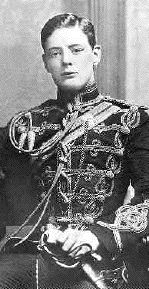Polo's Roots are in Ancient Warfare
Saturday, August 23, 2003
Although many associate polo with the British Empire, the game's origins are far older. Four thousand years ago the tribes of central Asia domesticated wild horses, migrated to Persia and mastered the art of warfare on horseback. To practise their manoeuvres, they began playing polo. The first references to the game in Persian literature date to 600 BC. But the best-known are contained in the 11th-century Rubaiyat of Omar Khayyam, who used polo as a metaphor for God's dominion over the apparent chaos of life: In the cosmic game of polo you are the ball The mallet's left and right becomes your call He who causes your movements, your rise and fall He is the one, the only one, who knows it all. Thanks to the military superiority of its cavalry, Persia expanded its empire across Asia in the 5th century BC, and the horse -- and polo -- arrived in China, Japan and Tibet. ("Polo" is derived from pulu, the Tibetan word for ball.) Although it has all but vanished from those lands, it is still played by the hill tribes of northern Pakistan; the biggest match of the year in that country is played under a full moon on a rocky field astride the 11,000-foot Shandur Pass, following rules dictated 800 years ago by a descendant of Genghis Khan. Polo came to the west via India, where the game was introduced in the 16th century. By the middle of the 19th century, polo flourished in several Indian provinces, especially Manipur, where it was observed by puzzled British government officials. One of them wrote an account of the sport and, in 1869, an officer with the Tenth Hussars, a cavalry regiment based at Aldershot, near London, read about it in a sporting journal. He was so impressed that he immediately ordered his men to start playing makeshift games; within a year, polo was a standard part of a British cavalry officer's training. But the games were confused melees, so in 1874 London's fashionable Hurlingham Club established a set of rules (see "Polo: The basic rules"), many of which are still in use today. Duly armed with their laws, the British took polo around the world. British cattlemen introduced the game to Argentina, the current mecca for polo aficionados. In Buenos Aires every December as many as 30,000 polo fans attend the Argentine Open, the world's most prestigious tournament. In the land of the gaucho, boys growing up on estancias (estates) play polo as soon as they learn to ride; consequently, the majority of top-ranked players are Argentines, including 27-year-old Adolfo Cambiaso, the sport's tabloid-handsome superstar and current leading goal scorer on the World Polo Tour. Historically speaking, however, polo's most articulate spokesman must be Winston Churchill, who learned the game in 1895 when he was a young cavalry officer. (He wrote to his mother and begged her for money to buy polo ponies: "I cannot go on without any for more than a few days," he wrote, "unless I give up the game, which would be dreadful.") A year later, stationed in India, he organized a polo club and purchased 25 horses from another regiment with the aim of winning India's prestigious inter-regional tournament. His team practised every day in the blistering heat, and travelled up to 1,400 miles by train with its horses to play invitational matches. In My Early Life, he describes a game with the kinsmen of Sir Pertab Singh, the regent of Jodhpore: "Old Pertab, who loved polo next to war more than anything in the world, used to stop the game repeatedly and point out faults or possible improvements in our play and combination. 'Faster, faster, same like fly,' he would shout to increase the speed of the game. The Jodhpore polo ground rises in great clouds of red dust when a game is in progress. These clouds carried to leeward on the strong breeze introduced a disturbing and somewhat dangerous complication. Turbaned figures emerged at full gallop from the dust-cloud, or the ball whistled out of it unexpectedly. It was difficult to follow the whole game, and one often had to play to avoid the dust-cloud." Thanks to his determination, Churchill's team won the inter-regional tournament in 1899. He continued to play polo until the age of 52, despite suffering a constantly dislocating right shoulder which forced him to ride with his hitting arm bound to his side. "Don't give your son money," he later advised parents. "As far as you can afford it, give him horses. No one ever came to grief -- except honourable grief -- through riding horses. No hour of life is lost that is spent in the saddle. Young men have often been ruined through owning horses, or through backing horses, but never through riding them; unless of course they break their necks, which, taken at a gallop, is a very good death to die." © Copyright
2003 Vancouver Sun | |||||||||

